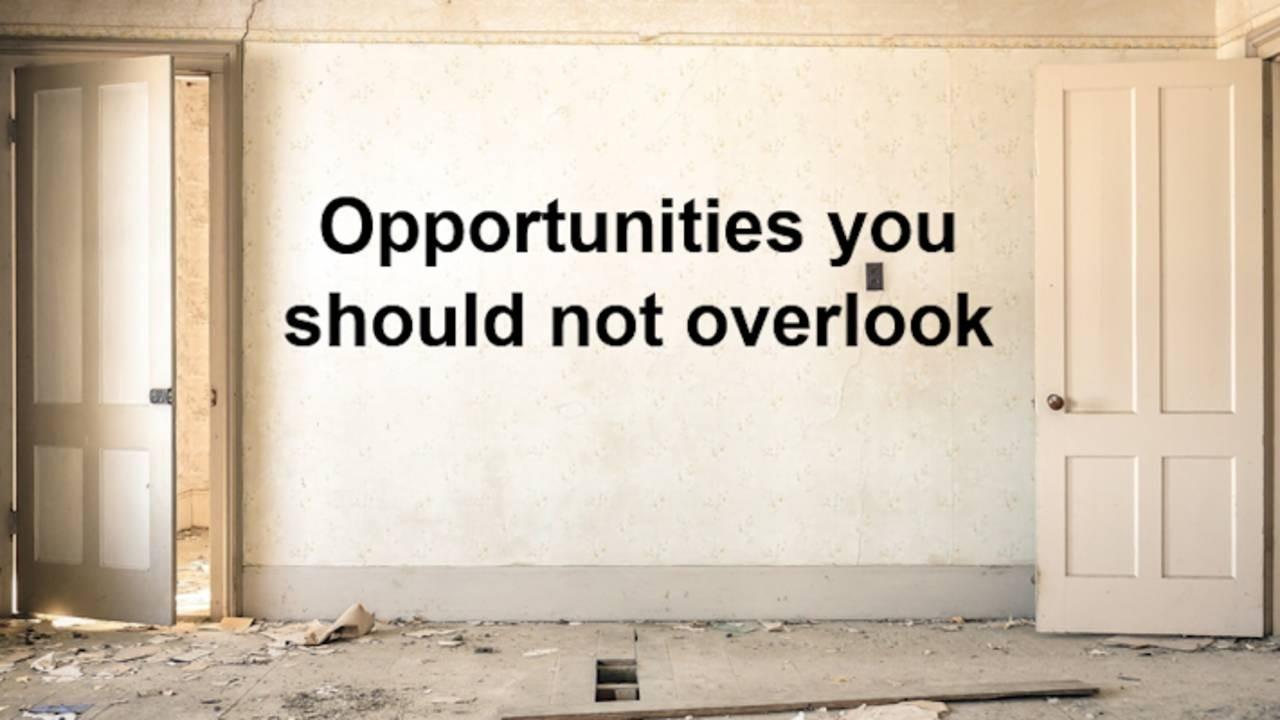Top tips on financing a new build

If you’ve been building your property portfolio and have an eye on doing a new build project, you need to know the ropes to ensure you finance it properly and make a good profit.
These are my top tips:
Development finance is different
It’s different to most other property finance options and you need to understand how it works. This kind of finance is no longer available from the banks, who pulled out of it during the 2008 credit crunch. Most development finance lenders are small specialist lenders who usually only offer this kind of finance.
There are barriers to entry to deter people who are dabbling and ensure only serious investors qualify.
You’ll need experience
This is that Catch-22 situation. You need experience, but you can’t get experience without the funding to support you. The lender will expect you to have relevant experience – in other words the same level of development. For a single or double unit project,...
Growing your property portfolio

THE QUESTION
Is this possible:
- Buy 5 houses (50-60k price range) on BTL mortgages with 25% deposits, do small refurbs out of own cash with aim to rent them out within 3 months max.
- In 6 months’ time, refinance to pull some cash out of the deal (most will still have money in them)
- Use the rental profits + cash from the refinancing to buy more rental properties
- Repeat, building up a portfolio.
Question is, does this work? Can I use BTL mortgages for this or do I have to use bridging finance? Can I refinance BTL mortgages in this price range? Will there be limits to what I will be able to pull out of the re-mortgage bit. (This is all assuming I take zero out of the company)
THE ANSWER
Your intention is sound, but your strategy to achieve it is a bit off beam. I know something about this, because I have been teaching investors how to achieve exactly this outcome, and a lot more, since 2013. Here is how to refine it to make it more achievable.
- Using...
Going, going, gone

If you’re thinking of buying at auction, bidding is the least of your worries. Before you set foot in the auction room you must have done your homework.
Check out the auctioneer’s catalogue and don’t go in blind. Check the properties you’re interested in. Find out as much as you can about them:
- How long they’ve been on the market
- If they’ve been offered in the mainstream market what was the last asking price
- If there are any serious problems that will need fixing to make the property habitable – and importantly, mortgageable
Then you need to get your calculator out and work out the maximum price you can realistically pay for this property, to ensure you have profit built in after any work that needs doing.
You’ll also need to calculate how long any refurb is likely to take and KNOW (not guess) how much it will cost to do it and how long will that take. If you’re experienced in refurbs and...
Buy as a company or as an individual?

THE QUESTION
I have a restaurant business, which is a limited company. A couple of our sites are in places where finding staff can be tough, so offering live-in accommodation could really help us. I’d like to buy a property to use as staff accommodation, what kind of mortgages are available and how much will I need for a deposit?
THE ANSWER
Staff accommodation seems to be a sensible solution to restaurants in remote places. There is a prestigious restaurant on the Isle of Skye that does exactly that; and staff accommodation is an attractive perk in the hospitality industry.
Buying a significant asset (especially property) in the name of a trading business leaves the asset available for any potential future creditors of the business to go after.
The smarter options would be to buy in your personal name or set up a new limited company for owning property. Deciding which is the smarter of the two is, essentially, a tax question because you will be...
How do you work out the maximum price to offer?

There is one thing that can seriously dent the profit in any project and that’s overpaying for the property. An essential part of your due diligence is to work out the maximum you can afford to offer on any property, while still giving you the profit margin you need.
It’s easier to work backwards when doing this.
Start with the end value that your property will be worth once you’ve completed any work that you propose to do to it. You should be able to find comparable values of similar properties that have sold within the last few months.
The majority of properties that investors buy are flats, terraced and semi-detached houses. They don’t tend to buy large detached properties in five acres of ground, this means that comparable values are much easier to obtain for these types of property.
If you are buying a commercial property this may not be so easy and you may need to engage a commercial surveyor to get a true current and future value.
...
Get the maximum ROI

Most investors think that the only way to finance deals, when their bank account hasn’t got enough in it, is to joint venture (JV). To maximise your return on investment there is a JV Pro-Fit Retainer strategy.
Stop giving away 50% of your deal’s profits when you joint venture and, if you do decide to set up a joint venture stay on the right side of the FCA.
- PRO = Professional – the way you approach your joint ventures
- FIT – Fit for purpose – ensuring your JV agreements are legal and can’t come back to bite you.
The key thing to remember is that the Financial Conduct Authority (FCA) states that you must only joint venture with someone who is categorised as a sophisticated investor. That means you need to know about PS13/3 and what constitutes a sophisticated investor and there are seven main criteria for these.
- An annual salary of £100K+
- Independent assets of £250K+ (not including equity in their main residence)
- Employed...
Building your property network

Property investment can be a lonely career as so many people – who are not in it and don’t know much about it – consider it to be a mug’s game, risky and not a ‘proper job’.
I think it’s a bit like Twitter (which is also a network), people either ‘get it’ or they don’t. I know lots of people who think Twitter is an ideal way to make contacts – and I know quite a few who think it’s a massive waste of time! My social media expert friends tell me it’s an exercise in joining up the dots – it’s not who you know, it’s who they know.
I speak at many property networking events and they are generally well-attended, and I know there are a huge number of property investors who don’t go to networking meets.
Who do you want in your network?
Attending your local BNI or other business network probably isn’t going to be a huge help to you as a property investor. You’ll...
Opportunities you should not overlook

Are you looking out for unmortgageable properties with problems that you can solve? They’re lucrative investments if you know how to leverage them – and with smart financing, using bridging they are great opportunities.
These are all great for intelligent investors, but mortgage lenders won’t touch them.
- A derelict property
- Properties where part of the building is in severe disrepair and needs demolishing
- Properties without a kitchen and bathroom
- Properties with multiple kitchens
- Most lenders do not lend on properties valued below £50K, especially buy to let lenders
- Most lenders will not lend on a leasehold property with a short lease; typically less than 70 years
- Lenders are very unlikely to lend on a property with sitting tenants/Regulated Tenancies
- Properties with any kind of structural defects
- Properties with damp, mould, dry or wet rot, wall tie problems
- Properties where planning applications have not been applied for correctly i.e. flat conversions...
The risks of buying a non-standard construction property

THE QUESTION
I’ve just been offered an HMO in need of some work. There's about £20k in the deal, and it could be flipped or end up as NMLI (no money left in), but it's a Wimpey no-fines house, i.e. poured concrete construction. I have heard that Birmingham Midshires lend on these, but considering an exit strategy (immediate or in future) is it wise to go down this route?
If a flip, will buyers be put off by the fact there's only one potential lender. If buy to hold, is it possible that the one available lender could re-assess their exposure and pull that product, making it a cash only deal – and wiping the profit out of the deal?
THE ANSWER
I see this regularly – non-standard construction properties where the reduction in price comparable to similar standard construction properties attracts investors like moths to a flame.
These are mostly properties built for councils, post-WW2, by the prominent builders of the day. Concrete...
Using someone else’s money

THE QUESTION
I want to purchase a property for a potential serviced apartment; it also works at 8.5% yield as a Buy-to-Let.
I had a JV partner who was going to put in the deposit with the mortgage in my name. My mortgage broker has informed me that no lender will accept a deposit unless it is from a family member. I have not heard this before, is there any way round this?
THE ANSWER
This has been standard lender practice for some time. BTL lenders prohibit you from borrowing the deposit, their criteria states that deposit must come from your own savings. You cannot even borrow from family, it must be a gift and the gifting family member must not have any interest in the property.
They insist that you use only your own cash for deposits and they will drill down by requesting bank statements until they are satisfied it is your own money or decline to lend when they discover it is not.
There are several reasons for this stance. Lenders consider it...




